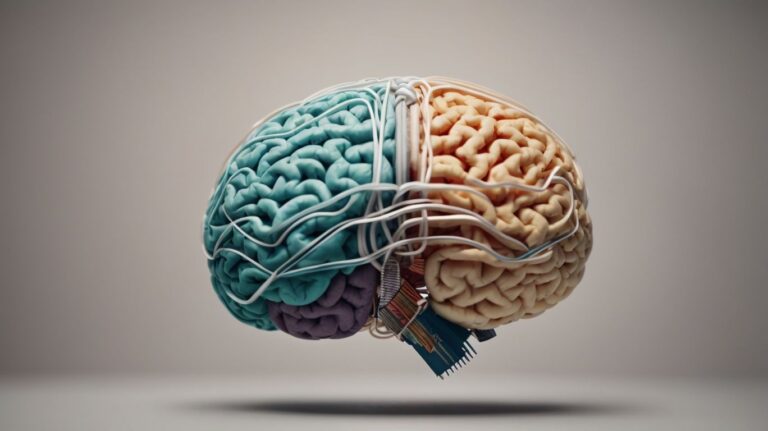In the world of psychology, the desire for male validation is a common yet often overlooked phenomenon. Men seek validation for a variety of reasons, ranging from societal expectations and gender roles to insecurities and low self-esteem.
This article will delve into the reasons behind the need for validation, the impact it has on mental health, and how men can overcome this need. By examining the negative effects of seeking external validation and the connection to toxic masculinity, we can better understand the importance of building self-esteem and seeking support.
Whether you’re a man seeking validation or someone looking to support the men in your life, this article will provide valuable insights into this complex psychological issue.
Contents
- 1 Key Takeaways:
- 2 What Is Male Validation?
- 3 Why Do Men Seek Validation?
- 4 How Does Male Validation Affect Mental Health?
- 5 How Can Men Overcome the Need for Validation?
- 6 Conclusion
- 7 Frequently Asked Questions
- 7.1 What is the desire for male validation in psychology?
- 7.2 Why is understanding the desire for male validation important in psychology?
- 7.3 How does the desire for male validation manifest in individuals?
- 7.4 Is the desire for male validation a result of societal expectations?
- 7.5 What are the potential negative effects of the desire for male validation?
- 7.6 Can the desire for male validation be addressed and overcome?
Key Takeaways:
What Is Male Validation?
Male validation refers to the act of seeking approval, recognition, and affirmation from others, particularly in the context of masculinity, relationships, and societal expectations. It encompasses the desire for acknowledgment, admiration, and attention, often influencing a man’s sense of self-worth and emotional well-being.
While male validation is often associated with obtaining recognition and approval from society or peers, it runs much deeper than just external acknowledgment.
It can impact a man’s personal identity, creating a sense of validation that transcends superficial recognition. The need for validation in male identity and relationships stems from societal norms, stereotypes, and expectations that dictate what it means to be a man, placing a significant emphasis on strength, success, and independence.
Why Do Men Seek Validation?
Men seek validation for various reasons, driven by their innate desire for recognition, approval, and affirmation in both personal and societal contexts. This pursuit of validation often stems from the need to feel desired, acknowledged, and valued within their relationships and broader social spheres.
Validation forms a crucial aspect of men’s emotional well-being and self-assurance. Whether it’s seeking validation from a romantic partner, friends, family, or colleagues, the yearning for acknowledgment and approval frequently influences their behaviors and decisions.
The pursuit of validation can also shape their perspectives on self-worth and confidence, impacting how they engage with others and navigate their roles in society. Understanding the intricate layers of validation in the male experience presents an enriching opportunity to delve into the complexities of human emotions and interconnected relationships.
Societal Expectations and Gender Roles
Societal expectations and traditional gender roles play a pivotal role in shaping men’s validation-seeking behavior, often influencing their desires for recognition, acceptance, and affirmation in alignment with established norms and expectations. The societal constructs surrounding masculinity and gender roles significantly impact men’s perceptions of validation and the pursuit of external acknowledgment.
Men often experience pressure to adhere to these societal expectations, striving to meet the standards of success, strength, and emotional resilience. This can lead to a reluctance to seek validation openly, as it may challenge the prescribed notions of masculinity.
As a result, men may internalize their need for validation, seeking it through achievements, professional accomplishments, or conforming to predetermined roles. The intricate interplay of societal constructs, personal aspirations, and validation-seeking behavior creates a complex landscape for men navigating their quest for affirmation.
Insecurities and Low Self-Esteem
Men’s pursuit of validation is often rooted in underlying insecurities and low self-esteem, leading to a heightened desire for external affirmation and recognition to compensate for internal doubts and emotional vulnerabilities. The quest for validation becomes intertwined with efforts to alleviate insecurities and bolster self-worth within personal and relational contexts.
This pursuit of validation can manifest in various forms, such as seeking approval from peers, striving for professional success, or pursuing physical attributes that align with societal standards of attractiveness.
The interplay between low self-esteem and the quest for validation can drive men to engage in behaviors that aim to elicit positive feedback and validation from others, including seeking out admiration, avoiding criticism, and constantly comparing themselves to others to validate their worth.
Fear of Rejection and Abandonment
Men’s pursuit of validation is often intertwined with a deep-seated fear of rejection and abandonment, driving the desire for external affirmation and recognition to mitigate the perceived risks of emotional isolation and disconnection. The fear of rejection and abandonment fuels the need for validation within relationships and societal interactions.
Men’s yearning for external validation and acceptance stems from a primal fear of being left behind or discarded, whether in personal relationships or within the broader societal fabric.
The emotional weight of rejection and abandonment can manifest as an overwhelming push for validation from others, serving as a buffer against the looming dread of being sidelined or deserted.
This underlying fear influences men’s behaviors and attitudes, shaping their manifestations of vulnerability and their drive to seek approval and affirmation.
The fear of rejection and abandonment can lead to a relentless pursuit of recognition and validation, often at the expense of genuine self-acceptance and inner peace.
Need for Approval and Acceptance
Men’s pursuit of validation is driven by a fundamental need for approval and acceptance, influencing their desires for external recognition, acknowledgment, and affirmation within interpersonal relationships and societal contexts. The quest for validation stems from the inherent longing for approval and acceptance, shaping men’s behaviors and emotional experiences.
Seeking approval and acceptance is a fundamental aspect of human psychology, affecting gender equally. For men, the yearning for validation often manifests in striving for success, be it in professional achievements or maintaining a certain image.
The societal constructs and expectations surrounding masculinity further magnify this need for validation, influencing behaviors and emotional well-being. The impact of recognition and affirmation can be profound, contributing to confidence, sense of worth, and overall fulfillment.
How Does Male Validation Affect Mental Health?
The impact of male validation on mental health is profound, as the pursuit of external affirmation and recognition can significantly influence men’s emotional well-being, self-perception, and relational dynamics.
Seeking validation from society, peers, or romantic partners can lead to a constant need for approval, which may in turn contribute to feelings of inadequacy and insecurity.
This can create a cycle of seeking validation to fill a perceived void, affecting their self-esteem and mental well-being. The pressure to conform to societal standards of masculinity to gain validation can lead to suppressing emotions and authentic self-expression, impacting their emotional and psychological health. These patterns of seeking approval may also influence their relationships, as the constant need for validation can affect their ability to form genuine connections.
Negative Effects of Seeking External Validation
The pursuit of external validation can engender negative effects on men’s mental health, leading to heightened emotional vulnerabilities, self-doubt, and relational challenges as the reliance on external affirmation and recognition exacerbates internal insecurities and emotional instability. The negative impacts of seeking validation can manifest in various aspects of men’s mental and emotional well-being.
When men heavily rely on external validation, it can result in a lack of self-confidence and a perpetual need for approval from others. This can lead to a constant state of insecurity, affecting their ability to form genuine connections and maintain healthy relationships.
Emotional well-being can be significantly impacted, as they may struggle to express their true feelings or seek support when needed. The continuous pursuit of external validation can perpetuate a cycle of self-doubt, hindering personal growth and creating obstacles in their pursuit of happiness and fulfillment.
Impact on Relationships and Intimacy
The pursuit of male validation can significantly impact men’s relationships and intimacy, as the quest for external affirmation and recognition may create emotional barriers, communication challenges, and vulnerabilities that impede the development of deep, authentic connections. The influence of validation-seeking behavior on relationships and intimacy is profound.
Men seeking validation often prioritize external affirmation, which can lead to reliance on others’ opinions and perceptions of themselves. This reliance can create emotional barriers, as their self-worth becomes contingent on others’ validation, making it difficult for them to express vulnerability or resolve conflicts without feeling threatened.
The pursuit of male validation can affect communication dynamics within relationships. Men may struggle to openly communicate their emotions, concerns, or needs, as they fear that expressing vulnerability or seeking support may compromise their perceived strength or masculinity.
The impact of validation-seeking behavior can hinder the development of authentic connections, as individuals may struggle to establish genuine intimacy when their sense of self-worth is rooted in external validation. This can create a barrier to developing deep, meaningful relationships based on mutual understanding, trust, and emotional vulnerability.
Connection to Toxic Masculinity
The pursuit of male validation often intersects with toxic masculinity, amplifying the negative effects on men’s mental health and relational dynamics, as the pressure to conform to traditional gender norms and expectations intensifies the quest for external affirmation and recognition. The connection to toxic masculinity compounds the challenges associated with validation-seeking behavior.
Traditional societal expectations of masculinity often dictate that men should be strong, dominant, and unemotional.
As a result, the pursuit of male validation becomes intertwined with toxic masculinity, where men may feel compelled to suppress vulnerabilities and emotions in favor of projecting an image of unwavering strength and control.
This pressure to gain validation through conformity to these rigid norms not only perpetuates toxic masculinity but also contributes to the internalization of destructive behaviors and attitudes, further exacerbating the negative impact on men’s mental well-being and relationships.
How Can Men Overcome the Need for Validation?
Overcoming the need for validation involves a transformative journey for men, encompassing the cultivation of self-esteem, the reevaluation of societal expectations, and the development of healthy coping mechanisms to foster emotional resilience and relational fulfillment. Embracing self-worth and authenticity while challenging external validation is essential for men’s holistic well-being.
Men embarking on this transformative journey often face the challenge of breaking free from the deeply rooted societal norms dictating what it means to be ‘man enough’. It requires a conscious effort to shift away from seeking approval from others and instead focus on building an unshakeable sense of self-worth.
This journey also involves reevaluating the expectations placed upon men by society, allowing for a more authentic expression of emotions and vulnerability. By exploring their emotional landscape, men can reframe societal norms and redefine what it means to be truly fulfilled.
Healthy coping mechanisms play a crucial role in this journey, offering the tools needed to navigate through the complexities of emotions and relationships. Developing resilience and finding fulfillment within oneself ultimately fosters stronger, more authentic connections with others.
Building Self-Esteem and Self-Worth
Building self-esteem and self-worth is a fundamental step for men to overcome the need for validation, involving the cultivation of internal confidence, self-acceptance, and intrinsic value that transcends external affirmation and recognition. The journey towards self-worth reshapes men’s emotional resilience and relational dynamics.
It begins with recognizing and challenging negative self-beliefs and embracing a growth mindset that encourages learning and self-improvement.
Men can develop self-esteem by setting achievable goals and celebrating small victories, nurturing a sense of self-efficacy and competence. Engaging in activities that align with personal values and strengths fosters a sense of purpose and fulfillment. Practicing self-compassion and embracing imperfections plays a crucial role in cultivating self-worth.
Men can also benefit from seeking support from trustworthy individuals and professional guidance to navigate the journey towards greater self-esteem and self-worth.
Challenging Societal Expectations and Gender Roles
Challenging societal expectations and traditional gender roles is crucial for men to transcend the need for validation, as it involves the reevaluation of external pressures, norms, and constructs that dictate the pursuit of external affirmation and recognition. Embracing authenticity and individuality reshapes men’s relationships and emotional well-being.
When men confront societal expectations and prescribed gender norms, they free themselves from the confines of seeking approval from outdated constructs.
By questioning these preconceived notions, men break the cycle of conforming to set standards that often disregard their true essence. This process invites men to honor their unique identities, paving the way for a healthier, more genuine expression of self.
Through this reevaluation, men redefine their interactions, foster deeper connections, and experience a profound sense of enablement.
Developing Healthy Coping Mechanisms
The development of healthy coping mechanisms is essential for men to navigate the journey of overcoming the need for validation, involving the cultivation of emotional resilience, self-awareness, and adaptive strategies to address internal vulnerabilities and relational dynamics without reliance on external affirmation and recognition. The embrace of healthy coping mechanisms fosters holistic well-being and relational fulfillment for men.
When men invest in cultivating healthy coping mechanisms, they equip themselves with invaluable tools to navigate life’s challenges with resilience and strength.
Self-awareness becomes a compass, guiding them through emotional landscapes and helping them understand and manage their reactions.
Embracing healthy coping mechanisms entails a commitment to understanding and managing emotional triggers, which often stem from internal vulnerabilities and relational dynamics.
This self-awareness allows men to engage in constructive, adaptive strategies, fostering personal growth and reducing the reliance on external validation.
The embrace of healthy coping mechanisms significantly contributes to holistic well-being, encompassing emotional, mental, and physical health.
By fostering a strong sense of resilience, men can weather storms and bounce back from setbacks with greater ease, promoting sustained fulfillment and contentment.
Seeking Therapy and Support
Seeking therapy and support is a transformative step for men in overcoming the need for validation, as it involves professional guidance, emotional exploration, and relational insights to address underlying insecurities, emotional vulnerabilities, and the pursuit of external affirmation. Embracing therapeutic support fosters men’s emotional well-being and relational fulfillment.
Through therapy, men can navigate through the intricate web of societal expectations, and cultural norms that often hinder their authentic expression and emotional fulfillment.
It provides a safe space to dismantle obsolete ideologies and explore healthier ways of self-validation, without relying solely on external sources for reassurance. This journey of self-discovery encourages men to develop a deeper understanding of themselves, enabling them to cultivate healthier and more meaningful relationships.
Conclusion
The exploration of male validation reveals its profound impact on men’s emotional well-being, relational dynamics, and societal interactions, highlighting the complexities of validation-seeking behavior and its implications for men’s holistic development and relational fulfillment.
The quest for validation can significantly shape a man’s self-perception and confidence, affecting his mental health and overall sense of worthiness. The influence of male validation extends to interpersonal relationships, as men may seek validation from their peers, romantic partners, or within professional environments.
This quest for validation can perpetuate traditional gender roles and reinforce societal expectations, impacting both men and women in complex ways. It’s essential to recognize the nuanced nature of male validation and its far-reaching effects on individual well-being and social dynamics.
Frequently Asked Questions
What is the desire for male validation in psychology?
The desire for male validation in psychology refers to the need for men to seek approval and recognition from others, particularly from other men, in order to feel validated and confident in themselves.
Why is understanding the desire for male validation important in psychology?
Understanding the desire for male validation is important in psychology because it can shed light on the underlying reasons for certain behaviors and mental health issues in men. It can also help in developing effective interventions and treatments.
How does the desire for male validation manifest in individuals?
The desire for male validation can manifest in different ways, such as seeking constant approval and praise from others, participating in risky behaviors to impress others, or feeling inadequate and insecure without the validation of others.
Is the desire for male validation a result of societal expectations?
Yes, societal expectations of traditional masculinity can contribute to the desire for male validation. Men are often taught to suppress their emotions and seek validation through achievements, status, and dominance, which can lead to a constant need for external validation.
What are the potential negative effects of the desire for male validation?
The desire for male validation can lead to harmful behaviors and attitudes, such as aggression, competitiveness, and a disregard for one’s own well-being. It can also contribute to mental health issues such as depression and anxiety.
Can the desire for male validation be addressed and overcome?
Yes, with self-awareness and therapy, the desire for male validation can be addressed and overcome. By challenging societal expectations and learning to validate oneself, men can develop a healthier sense of self-worth and reduce their need for external validation.



